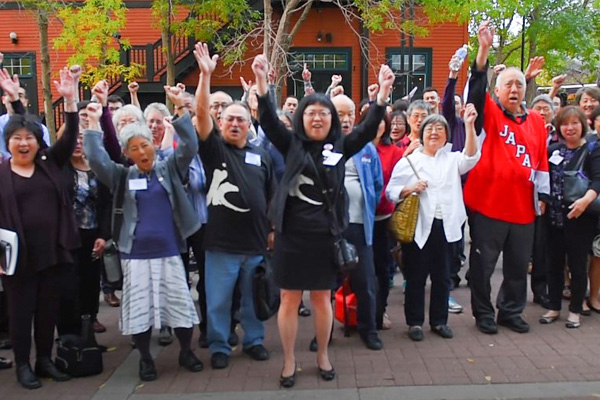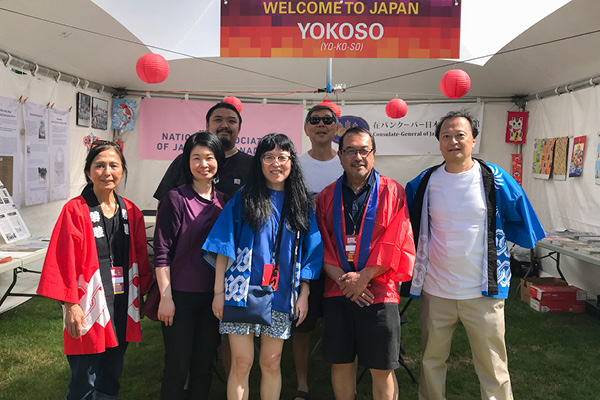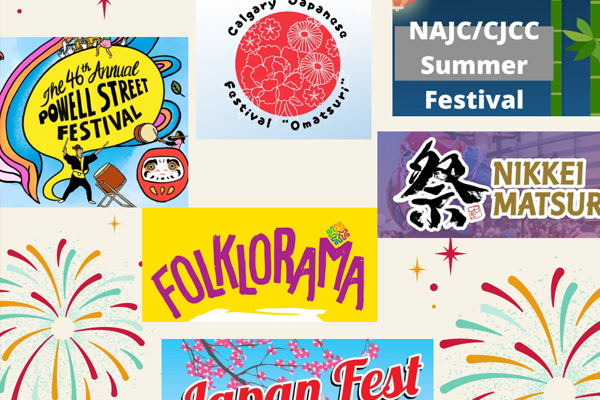by Lorene Oikawa
Spring is here! On the west coast, the crocuses and daffodils are in bloom and the cherry blossoms are making their appearance. Sakura, the ethereal Japanese cherry blossoms, capture our attention just like they have done since ancient times, in the Heian period (794-1185), in Japan. Local officials in Japan have been encouraging people to forgo Hanami, the gathering and parties, under the blooming trees because of the COVID-19 pandemic.
As the blooming of sakura starts making its way across the country, enjoy viewing the cherry blossoms, but please continue to keep safe. Follow the health and safety protocols such as wearing masks, avoiding gatherings, distancing and washing hands.
Vaccinations are taking place across the country, and we are seeing the benefits of vaccines in high-risk populations. At the same time, there are increasing numbers of variants which are being associated with outbreaks.
We could all use some relief. Asian American and Asian Canadian communities were shaken by another incident of violence. In Atlanta, six Asian American women were among the eight that were shot and killed. While the investigation continues, those of Asian ethnicity on both sides of the border are scared. There is an upsurge in the attacks against Asian Americans and Asian Canadians which started at the beginning of the COVID-19 pandemic. Anti-Asian racism is not new, and the rhetoric and tactics are similar to what we’ve heard and seen before. Scapegoating based on their perceived ethnicity; groups and individuals are unfairly blamed for the pandemic. There is the “othering” of people through comments, questions, jokes, and racial slurs. Attacks take place in person including graffiti, vandalism, verbal and physical assaults. We are also seeing an increase in online attacks through social media. The Canadian Race Relations Foundation and YWCA Canada have just launched an initiative to #blockhate & raise awareness of online hate speech, and abuse and racism.
Our Japanese Canadian ancestors experienced it when they first came to Canada as settlers in the 1800s. They saw it in the anti-Asian riot that took place in 1907 in downtown Vancouver. Anti-Asian racism persisted and manifested in the injustice against Japanese Canadians during the Second World War. In 1942 Japanese Canadians were forcibly uprooted, dispossessed, interned until four years after the war ended, and exiled.
Other Asian Canadians have their own stories to tell. There is diversity within Asian communities. We’re not all the same, but we do have the experience of anti-Asian racism in common. More work needs to be done to stop the stereotypes, the marginalization of racialized people, and creating processes and policies to prevent the toxic environments where bullies thrive.
The NAJC is promoting education and creating safe spaces where we can share our stories and build inclusivity.
One of our upcoming online sessions provides an opportunity for an open discussion for immigrants (Ijusha) and will be conducted in Japanese. Mariko Kage is the guest speaker on Saturday, April 17, 2021 at 1pmPT 2pmMT 4pmET To register for the 90 minute Zoom session go to:
bit.ly/30TLgZC
We continue to develop our online programming. Join us online. najc.ca/online-programs/ For news and updates, subscribe to NAJC e-news at najc.ca/subscribe/
We will be providing more information about other online sessions during April and are looking forward to Asian Heritage Month programming in May.
A reminder that the deadline for the NAJC Endowment Fund applications is June 30, 2021. The purpose of the NAJC Endowment Fund is to enhance the development of the Japanese Canadian community. There is funding available under two programs. The Cultural Development program provides financial assistance to community and cultural organizations, and individuals for projects and activities which promote and develop JC culture and heritage. The Sports, Education, and Arts Development (SEAD) program promotes the athletic, artistic and academic development of Japanese Canadians at specialized or national levels. SEAD is not meant to replace scholarships or bursaries. The Endowment Fund Committee members, Sarah Matsushita, Sue Doi, and Yukari Peerless, are planning to have an information session for anyone interested in applying. Date TBD. Eligibility and application information is on the NAJC website. najc.ca/funds-and-awards
There is also a June 30, 2021 deadline for the NAJC Dr. Gordon Hirabayashi Human Rights Award. The nominee can be an individual or group in Canada committed to NAJC’s mandate and mission “to strive for equal rights and liberties for all people, particularly racial and ethnic minorities.” More details are on the NAJC website bit.ly/NAJCHRaward
Please keep in touch and let us know if you have any ideas for online programming. Also, we are interested in what’s happening in your community. For example, do you know a JC senior who is celebrating a special birthday? Let us know by emailing national@najc.ca We will share our best wishes on our Facebook page www.facebook.com/najc.ca
Stay safe and enjoy the spring.
– National Association of Japanese Canadians, National Executive Board
Just as The Bulletin is about to go to press, we have this breaking news. The Anglican Church of Canada and the National Association of Japanese Canadians are pleased to announce that an agreement in principle has been reached to provide healing support to Japanese Canadians affected by the actions of Mr. G. G. Nakayama. The full statement is on najc.ca



